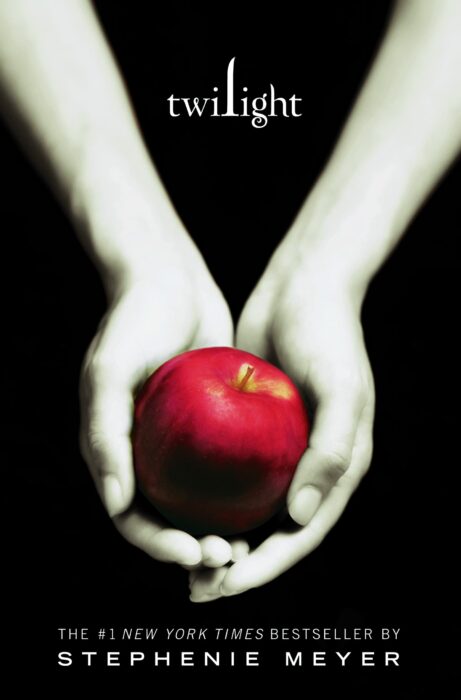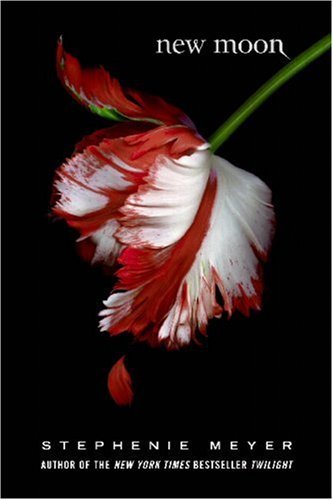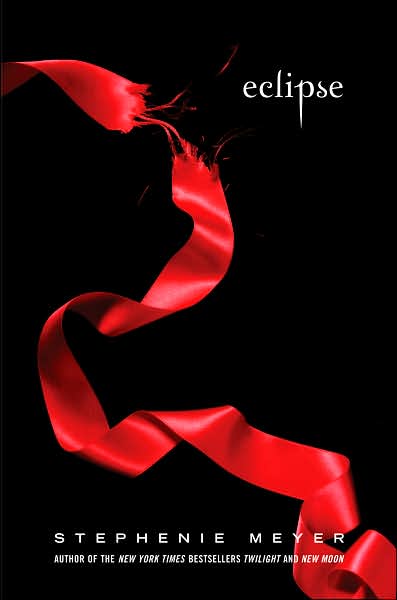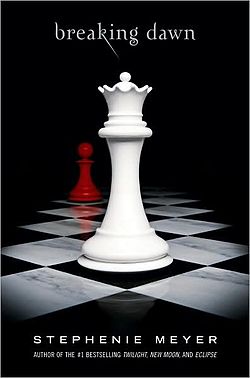Yes, The Twilight Saga Vampires Are Scary—But For All the Wrong Reasons
Note for discerning readers: This four-part Twilight Saga review deals frankly with the paranormal romance series’ toxic relationships and sexual imagery. Guest reviewer Amy Timco also shares a snarky tone that’s arguably necessary to confront this darkness.
The Twilight Saga has been ripped to shreds by many reviewers.1 But a coterie of devoted fans has loved this 2005–2008 novel series with equal fervor. Despite the controversy, the four-book series sold 120 million copies, while its five movie adaptations scored a successful $3.3 billion at the box office.
What’s the draw?
Twilight Saga author Stephenie Meyer understands her audience—primarily young women—very well. She presents a heroine who is little more than an empty shell for the reader to fill with her own personality, inserting herself into the story to feel the excitement of being irresistible to a powerful, drop-dead gorgeous male.
Swoon on cue.
Or not.
 Book 1: Twilight
Book 1: Twilight
If you don’t know the setup, let me spoil it for you.
Teenaged Bella Swan moves across country to live with her police chief father in what is the cloudiest city in the U. S. Bella doesn’t think she is pretty, but of course she is. (Her very name literally means beautiful swan). At school, she encounters the astonishingly attractive and sophisticated Edward Cullen. She can’t believe it when Edward is attracted to her—but of course, Edward and his family are not what they seem. They’re good vampires who have sworn off sucking human blood and instead drink the unsatisfying blood of animals.
The only problem is, Edward craves Bella’s blood with an insatiable passion.
First off, the writing is abysmal, and I can prove it. At the time of reading, I had just taken a course on editing fiction. I could pull many of Meyer’s sentences for samples we could correct in our homework, such as: “Desolation hit me with crippling strength.“ That’s called telling. There’s no subtlety about it, no descriptions that would clue us in without being explicit. Nor is it necessary to follow every sentence of bland dialogue with descriptions of how this makes Bella feel or how good Edward looks.
I confess feeling disappointed that the quintessential vampire tale Dracula didn’t even get a mention; it’s such an important work to the history of vampire lit. But I suppose this wouldn’t jibe with Meyer’s good vampires. (Of course, the idea of good vampires is not original with Meyer). I also didn’t understand why Meyer felt the need to include little digs against foreign-made cars, of all things! (Twilight twice reminds us that Bella’s truck could demolish any foreign-made car. Okay—?)
In addition, the plot is weak in many places, and Bella is not consistent. One minute she’s creating a smart plan to escape the tracker, and the next she is stupidly walking right into his trap. And no one can be that klutzy. The story they fabricate at the end to explain things would strain the faith of even the most credulous parents.
Good to be bad?
The most serious problem, of course, is Bella’s unhealthy obsession with Edward and her instant willingness to give up her life, her soul, her very self just to be with his gorgeousness forever. She loses herself entirely in her lust for him, and though the book occasionally hints that this isn’t good (such as Bella calling herself pathetic,“ and Edward saying their relationship is not healthy), none of these objections affect the characters’ behavior. It’s bad, sure, but it’s a good bad.
Edward doesn’t love Bella for herself. (Admittedly, that would be hard to do with such a generic heroine.) He feels physically drawn to her, by a primitive desire for her scent. Their entire relationship is predicated on his desire to kill her. He can’t stay away, not because he cares for her as a person, but because he has a physical need for her. Sadly, Twilight touts this as romantic, and young girls want that. They want to be simply the object of a man’s physical desire, and think somehow that this will fulfill their need for love. But lust—blood or otherwise—is not love.
Add graphic descriptions of sexual desire, and you have real problems with girls absorbing this stuff. Sure, Edward and Bella don’t have relations, but they might as well, based on some descriptions. Bella is not chaste out of morality or even self-preservation; she refrains only because she can’t get Edward to break his rule.
Edward gets a lot of flak for being the classic abusive boyfriend, but Bella shouldn’t get off so easily. She’s no helpless victim. She is very assertive about getting what she wants; but what she wants is selfish, stupid, and dangerous. But anyone who complains about Edward being controlling and selfish (and he is) should also realize Bella’s complicity with the situation, and indeed her insistence that it should be so.
Many girls have gone into life expecting their boyfriends to be completely obsessed with them as Edward is with Bella. That’s scary.
 Book 2: New Moon
Book 2: New Moon
To my shock, Twilight’s sequel introduced even more dangerous relational dynamics.
Bella and Edward break up, because Jasper almost kills Bella when she cuts her finger opening birthday presents. Edward realizes that he is not good for her (oh really?) and ends the relationship. The Cullens move away, and Bella falls apart. She has horrible nightmares and goes through each day like a zombie, trying to avoid the pain. She begins hallucinating, hearing Edward’s voice when she does dangerous stunts. So she starts doing these more often just so she can feel closer to him (what a fantastic role model for young women). She also becomes friends with Jacob Black, who turns out to be a werewolf. Of course Jacob is in love with her, and because she feels warmed by his presence, Bella leads him on.
Meyer often makes her characters do uncharacteristic actions because it serves the plot. But this weakens her characters. For example, the explanation for why Bella does not commit suicide is completely unconvincing; Bella says that she never considers this because she owes too much to her parents. Please! When you suffer that kind of distress, you aren’t worried about whom you will hurt when you are seeking relief. But then we wouldn’t have two more best-selling books, would we?
It also does not make sense that Bella would hesitate to marry Edward simply because her mom doesn’t think anyone should get married before age thirty—yet Bella is willing to make an eternal commitment to vampirehood for his sake. So she won’t marry him yet, but she will take an irrevocable step so she can be with him for the rest of their existence, which is forever? Weak.
The woman who wears the scars
One of Breaking Dawn’s most disturbing elements is the character of Emily, the fiancée of alpha werewolf Sam Uley. Sam became a werewolf without knowing what was happening to him—and one night he was too close to Emily when he lost his temper. He gouged her left side, raking his claws down her face and leaving her with horribly disfiguring scars all down her face.
But Meyer portrays their relationship as loving. The past is all forgiven. Physical abuse is just a regretful memory that Sam must occasionally address. Emily is happy to stay with the man who disfigured her so horribly in a moment of anger—just like so many women in physically abusive relationships. Oh, he was so sorry. He bowed and begged and felt just awful. But it’s the woman who wears the scars.
Few people will probably agree with me on this next point, but I felt uncomfortable with the idea that a girl can have a male best friend. Jacob proves my point by not being able to “just be friends’ with Bella— but Bella is somehow able to not return his feelings. This is because of the Incomparable Edward, of course. But there are no Incomparable Edwards in real life (thank goodness), and non-familial intimacy between the sexes almost always has a sexual dimension.
As in the first Twilight book, I did manage to enjoy the plot of the warring vampires and werewolves, with all the history behind their unusual relationship. The Volturi were oddly refreshing as well, merely because they were scary for the right reasons. It’s hard to enjoy a series with so many fundamental problems, and yet the idea is appealing enough for fantasy fans to risk a try.
 Book 3: Eclipse
Book 3: Eclipse
Just when you think there are no more sick and twisted situations left for Meyer to exploit in her books, she pulls another one right out of the air and plops it down in the middle of what could otherwise be a decent story.
In Eclipse, Bella is finally graduating high school and playing a neutral Switzerland to her two crazed lovers, Edward and Jacob. She hears reports of strange killings taking place in nearby Seattle—murders with no attempt to hide the remains. All the signs point to an army of newborn vampires, created by an older vampire with very definite purpose: Bella, of course. Could you have any doubts? I couldn’t, though it took the characters about 400 pages to realize what was going on.
Again, these relationships have many minor problems—and even greater issues. Edward is smug about forging Bella’s name on her college applications; he even says he can write her name better than she can herself. There is the disrespect to Charlie, and the way that Bella continues to use and abuse Jacob, and the way the Cullens hold Bella against her will, for her “protection“—and the exploding physical passion that Bella describes in excruciating detail every time Edward kisses her.
And don’t get me started on the tent scene, in which Bella is forced to snuggle up to Jacob for warmth, while Edward looks on. Ugh.
Good girls can always tame the monster?
Bella is, of course, still determined to sacrifice herself and become a vampire so she can stay with Edward forever. Again, Meyer makes characters do uncharacteristic actions to make the story work. I love how Edward suddenly tells Bella, a few chapters before this matters, that he no longer wants her blood. Apparently it was so awful when he thought she was dead that he would never desire anything that could bring that about. Convenient, isn’t it?
I did enjoy some parts of this book. Rosalie’s back story was pretty interesting, and it was nice to have her persona explained. It was also fascinating to learn more about Jasper. Really, the best things about this series are the other characters and mythology. I also enjoyed Seth Clearwater, a minor character who nevertheless manages to be far more interesting and vital than the main players.
Really, this book is just more of the same. New Moon and Eclipse are both fairly weak in the plot department. Eclipse does resolve and explain some elements, but adds so much padding that it’s hard for readers to remember essential details.
One element does stand out, though: the continued emphasis on disturbing relational dynamics, presented as fascinating and intimate.
 Book 4: Breaking Dawn
Book 4: Breaking Dawn
In the Twilight Saga’s finale, Bella and Edward finally get married. They plan to attend Dartmouth College in the fall, if Bella—as a new vampire with unpredictable and strong desires—can stand to be near humans without killing them. But this doesn’t happen. On their tropical-island honeymoon, Bella gets pregnant.
This book presents two seriously disturbing issues.
First, Edward leaves horrible bruises all over Bella from their lovemaking. He feels awful but Bella, of course, just eats it up. Apparently it’s okay if he hurts you so long as he’s what you want, right? Nothing else matters.
The second big problem is when Edward offers to let Bella bear Jacob’s children, if she will only let them abort Edward’s child that is slowly killing her from the inside out. If Bella wants babies, she must have them at whatever cost. How twisted is that offer? The relationships in this book are really sickmaking.
Another issue has run through the entire series—the graphic descriptions of sexual desire, so incredibly unrealistic and inappropriate for young girls to be absorbing. If raging physical desire sweeps through your entire being at a simple kiss, you have bigger problems than vampirehood. Why are girls as young as eleven and twelve reading these books? These readers aren’t old enough to realize this is all fantasy—and fantasy of a dangerous breed. Many older readers may not be able to make that distinction either. I think these books are setting up young women for a lifetime of disappointment; nothing can ever live up to Meyer’s ridiculous fantasies.
Once more the Saga weakens its characters by forcing them to fit the plot, rather than the other way around. Charlie’s unwilling, uncomfortable acceptance of the supernatural does not ring true. Meyer is trying to sew up two completely different worlds, and it just doesn’t work.
All this nastiness aside, I did find the book’s second half more interesting. The strategic plans for negotiating with the Volturi, all of Carlisle’s friends gathered from around the globe to stand witness that Renesmee was not a dread “immortal child,” and the final confrontation made for an absorbing finish. I’m surprised that many Twilight fans rate this fourth book as the worst of the bunch. Eclipse has the most cohesive and interesting plot, despite being too long.
Conclusion: Abuse is scarier than sucking blood
To be honest, my main objective in reading the Twilight Saga was to build credibility in criticizing it. I also enjoy fantasy and some vampire mythology. Meyer has managed to create an interesting idea in vampires choosing to become “vegetarians” and not drink the blood of humans; this offers a hint of redemption. But this is, of course, a self-redemption (or rather, self-reformation). Meyer belongs to the Church of Latter-Day Saints, that is, the Mormon religious group; her ideas should not be conflated with mainstream Christianity.
Although readers can enjoy the Twilight Saga thanks to some of its characters and mythology, the series’ severe problems prevent me from ever recommending it.
Yes, the vampires of Twilight are scary, but for all the wrong reasons.
Meyer’s vampires are not otherworldly manifestations of unadulterated evil. Instead, they are terrifying because they personify abuse and obsession—presenting these sins as a desirable good. Twilight scares me because it glorifies ugly relationships, and I have seen too many shadows of these in the real world.
- This article was originally published Nov. 7, 2011, based on Amy Timco’s Twilight Saga reviews at LibraryThing. We’ve made a few edits for this version. ↩



























Hi, Amy, thank you for taking the time to go so deeply into the Twilight saga. I know the series isn’t for everyone. The characters are certainly very obsessed with each other, but I still do not understand the accusations of Edward’s abuse because he has an instinct he never gives into. I unfortunately know many women trapped in abusive relationships; if they were with men like Edward, this world would be a better place. Also, Bella not killing herself for her parents’ sake is not unrealistic. That was one of my own defenses until God healed me of my depression. Sometimes people who are suffering are capable of some selflessness
However, the problem is that throughout the book a large part of Edward’s attraction to Bella is due to her delicious blood and his wanting to kill her. Their “romance” starts from there.
I’ve only read the first two books (and that was such a long time ago!) but I do recall feeling very uncomfortable with how the relationships were portrayed. That, and how inconsistent and one-dimensional the characters seemed. Those were my impressions on my first readings; I’m not sure if they’ll change if I read them now though. 🙂 Thanks for the article!
As I read this I found myself pondering fantasy romances versus contemporary or historical romances. There’s definitely an obsessive, unhealthy relationship between Edward and Bella, but personally I would find it odd if an immortal vampire who doesn’t sleep managed to have a normal love relationship. Of course he was going to obsess over the first woman he was attracted to? Her emptiness and susceptibility to obsession bothers me more. So when I read fantasy romances with unhealthy elements I read it through the lens of the crazy other stuff going on. I know young girls read these, and I’m wondering if they know how to read it through a lens like that. Because when I was younger (and now) I read fantasy romances differently than others, realizing that it would be unhealthy in my personal reality.
I would have said in other times that partner abuse cannot be compared to a werewolf hurting his partner by being unable to control himself but… the parallels are there and Twilight is not an adult novel but an adolescent one that girls read from 11 years. I understand that it is dangerous.
The male/female best friends thing is there’s a reason why it’s a romantic trope that they end up pairing up, that’s what usually happens! It is natural that the two sexes created by God are attracted to each other and cannot just be friends like brothers if they are not family! Let’s stop pretending that it is not so and that it is “toxic” that boys and girls begin to feel attraction if they spend a lot of time together in emotional intimacy.
And if Bella is totally abusive towards Jacob, she uses his feelings for her enjoyment while knowing that he is unhappy.
Unfortunately the Twilight boom to this date is over and teenagers are reading things 1000 times worse where there is no longer any vow of chastity involved, she can even have both boys if she wants! bully romance, Dark romance, stalker heroes… are some of the wonders that young and not so much women love today. It is enough to dive a little outside of Christian / clean romance fandom to see the type of romance or romantic fantasy that is the best seller today.